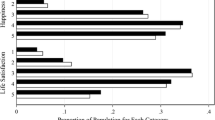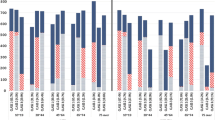Abstract
Leisure is the means of reproducing our energies we lose due to objective and subjective weariness. While the ‘cure’ for objective fatigue is sleeping and resting, the solution for subjective tiredness is leisure and pleasure. We need both to stay healthy. Opportunities to stay healthy are however not equal in our societies: Place of Residence; Race/Ethnicity; Occupation; Gender; Religion; Education; Socio-economic status; and Social capital/Resources (all together referred to as PROGRESS) are the key determinants. In the present paper we highlight at the gender issue from among the key determinants, which status is in strong connection with almost all the above listed features. Throughout history women’s political power, financial status (feminisation of poverty, wage gaps), education and labour market status (vertical and horizontal segregation) were less favourable than men’s. There are stereotypes like women cannot reconcile work and family. Women, who do all or most of the housework spare a lot of expenses for the family, without financial or moral appreciation. The gender-specific analysis of Hungarian time budget surveys performed since 1993 underline several aspects of unequal opportunities of men and women. Women spend more time on socially constrained workload than men, thanks to their unilateral responsibilities in household tasks and child rearing. As 24 h make a day up, regardless of genders, this excess time should be taken away from an other set of activities, namely from leisure. Mothers with small children, women on a maternity leave, housewives and the actively working women have the smallest amount of leisure time. Women with a vocational education and those living in lower status settlements also possess less time for leisure. Analysis by age revealed, that 30–39 and 40–49-year-old women have the least leisure time. The paper also highlights at the health - mental health consequences women suffer from due to the lack of quality leisure time, and suggests the utilisation of an effective time management aided by lifestyle counsellor professionals.






























Similar content being viewed by others
References
Andorka, R., Falussy, B. and Harcsa, I. (1990). Időfelhasználás és életmód (Time Use and Lifestyle). In: Andorka, R., Kolosi, T. and Vukovich, Gy. (Eds.). Társadalmi riport 1990, (pp. 192–207). Budapest: TÁRKI.
Benkő, Z. (2000). A családok életmódját meghatározó társadalmi tényezők. (Social factors defining the lifestyle of families). Szenvedélybetegségek, Addictologia Hungarica, 2000(1), 54–58.
Benkő, Z. (2016). A család történelmi fejlődése, kelet-közép európai kitekintéssel. (Historical development of families in Central-East Europe). In K. Tarkó & Z. Benkő (Eds.), "Az egészség nem egyetlen tett, hanem szokásaink összessége": Szemelvények egy multidiszciplináris egészségfejlesztő műhely munkáiból (pp. 45–52). Szeged: Szegedi Egyetemi Kiadó, Juhász Gyula Felsőoktatási Kiadó.
Benkő, Z. (2017). Healthy Leisure and Leisureful Health: Introductory 'State of the Art'. In Z. Benkő, I. Modi, & K. Tarkó (Eds.), Leisure, Health and Well-Being: A Holistic Approach (pp. 1–8). Cham: Palgrave Macmillan.
Benkő, Z., & Tarkó, K. (2017). Central and eastern European families from a historical developmental perspective. In K. Juszczyk-Frelkiewicz & G. Libor (Eds.), Contemporary Family – Comparative Perspective (p. 17). Katowice: Wydawnictwo Uniwersytetu Slaskiego.
Bourdieu, P. (1986). The forms of capital. In J. Richardson (Ed.), Handbook of theory and research for the sociology of education (pp. 241–258). New York: Greenwood.
CIA (2018). The world Factbook. US. https://www.cia.gov/library/publications/the-world-factbook/fields/2018.html Accessed: 25 June 2018.
Czachesz, C. E., Lesznyák, M., & Molnár, E. K. (1996). Lányok és nők a kötelező olvasmányokban, tankönyvekben. (Girls and women in compulsory readings and textbooks). Educatio, 3, 417–430.
Czibere, I. (2012). Nők mélyszegénységben (Women in extreme Powerty). Budapest: L’Harmattan.
Falussy, B. (1985). Tevékenységosztályozási rendszerek az időmérleg-vizsgálatokban (Activity Classification Systems in the Time Budget Surveys). Statisztikai Szemle, 85(8), 690–714.
Falussy, B. (2002). Társadalmi-gazdasági trendek a népesség időfelhasználásában (socio-economic trends in the time use of the population). Statisztikai Szemle, 2002(9), 847–868.
Falussy, B. (2007). Tevékenységosztályozási rendszerek az időmérleg-vizsgálatokban. (Activity classification systems in time budget surveys). Statisztikai Szemle, 85(8), 690–714.
Falussy, B., & Vukovich, G. (1996). Az idő mérlegén (1963–1993) (Time budget 1963–1993). In R. Andorka, T. Kolosi, & G. Vukovich (Eds.), Társadalmi riport 1996 (pp. 70–103). Budapest: TÁRKI, Századvég.
Ferencz, K., & Tarkó, K. (2016). Nők - iskola – esélyegyenlőség (Women – School – Equal Opportunities). In K. Tarkó & Z. Benkő (Eds.), "Az egészség nem egyetlen tett, hanem szokásaink összessége": Szemelvények egy multidiszciplináris egészségfejlesztő műhely munkáiból (pp. 233–247). Szeged: Szegedi Egyetemi Kiadó, Juhász Gyula Felsőoktatási Kiadó.
Fónagy, Z. (2014). "Első kötelessége a házibéke biztosítása" - A nő a polgári családban. (“Her first duty is to ensure the peace of home” – Women in the civic families). http://mindennapoktortenete.blog.hu/2014/03/08/noi_szerepek_740 Accessed 25 June 2018.
Gilman, C. P. (1898). Women and Economics. A Study of the Economic Relation between Men and Women as a Factor in Social Evolution. Boston: Small, Maynard & Co.
Henderson, K. A., & Gibson, H. J. (2013). An integrative review of women, gender, and leisure: Increasing complexities. J Leis Res, 45(2), 115–135.
Horváth, A., Perpék, É., Sebestény, I., Sebők, C., Sik, E., & Váradi, R. (2017). Háztartási munka, önkéntes munka, láthatatlan munka, I. Háztartási és önkéntes munka mérése, elemzése. (Housework, voluntary work, invisible work I. The survey and analysis of housework and voluntary work). Budapest: Központi Statisztikai Hivatal.
Kereszty, O. (2005). A társadalmi nemek reprezentációjának vizsgálata tankönyvekben. (The study of gender representation in textbooks). Könyv és Nevelés, 2005. September, 56−67.
Kereszty, O. (2014). Nők az oktatásban Magyarországon. (Women in Education in Hungary). In B. Juhász (Ed.), A Nőtlen Évek ára. A nők helyzetének közpolitikai elemzése 1989–2013 (pp. 260–294). Budapest: Magyar Női Érdekérvényesítő Szövetség.
Koncz, K. (2007). Szervezeti karriergondozás a nők előmenetelének szolgálatában. Sikeres európai uniós és hazai megoldások. (Organisational career care in service of women’s promotion. Successful solutions in the European Union and in Hungary). Vezetéstudomány, XXXVIII 2007(6), 2–16.
Kono, S., Kim, J., Gui, J., & McDaniel, J. T. (2018). Social-demographic correlates of leisure-time physical activities: A secondary data analysis of a large-scale survey in the U.S. International Journal of the Sociology of Leisure, 1–22. https://doi.org/10.1007/s41978-018-0018-6.
KSH (2010). Időmérleg módszertan (Time Budget Methodology). Budapest: KSH. www.ksh.hu.
KSH (2011). A 15–74 éves népesség napi időfelhasználása, 2010 (Daily time Budget of the 15–74 Years Old Population). Statisztikai Tükör, 2011(87).
KSH. (2012). Időmérleg 2009/2010. Összefoglaló adattár. (Time budget 2009/2010. Summary database). Budapest: KSH.
KSH (2018a). 2.1.1 A 15 éves és idősebb népesség a legmagasabb befejezett iskolai végzettség, korcsoport és nemek szerint, 2011. (Highest completed level of education of the 15 years old and above population, by age and sex, 2011). http://www.ksh.hu/nepszamlalas/tablak_iskolazottsag Accessed 09 July 2018.
KSH (2018b). 1.3.1 A befejezett felsőfokú végzettséggel rendelkező népesség száma és megoszlása a végzettség tanulmányi területe szerint, nemenként. (The number and distribution of people with completed higher education, according to the education area, by sex) http://www.ksh.hu/nepszamlalas/tablak_iskolazottsag Accessed 09 July 2018.
KSH (2018c). 1.2.3 A foglalkoztatottak nemek és nemzetgazdasági ág szerint. (Employees by sex and economic sector) http://www.ksh.hu/nepszamlalas/tablak_foglalkoztatas Accessed: 09 July 2018.
KSH (2018d). 1.2.4 A nők társadalmi rétegek és korcsoportok szerint, megoszlás társadalmi rétegek szerint. (Women by social strata and age, distribution by social strata) http://www.ksh.hu/nepszamlalas/tablak_tarsadalom_retegzodese. Accessed: 10 July 2018.
Lippai, L. L., Erdei, K. (2016). Lelki egészségfejlesztő programok előkészítése városi szinten - a hódmezővásárhelyi lelki egészségfelmérés elemzésének tanulságai. (Preparation of town-level mental health promotion programmes – lessons learnt from the mental health survey of Hódmezővásárhely) In: Tarkó, K., Benkő, Zs. (Eds.). "Az egészség nem egyetlen tett, hanem szokásaink összessége": Szemelvények egy multidiszciplináris egészségfejlesztő műhely munkáiból. (pp. 111–126). Szeged: Szegedi Egyetemi Kiadó, Juhász Gyula Felsőoktatási Kiadó.
Pollard, T. M., & Wagnild, J. M. (2017). Gender differences in walking (for leisure, transport and in Total) across adult life: A systematic review. BMC Public Health, 17, 341. https://doi.org/10.1186/s12889-017-4253-4.
PwC Women In Work Index (2017). Closing the gender pay gap. https://www.pwc.com/hu/hu/kiadvanyok/assets/pdf/PwC_Women_in_Work_2017_20170208_v2.pdf Accessed: 09 July 2018.
Rueschemeyer, M. (Ed.). (2012). Women in the politics of Postcommunist Eastern Europe. London and New York: Routledge.
Szabó, K. (2017): Női generációk és helyzetük a hazai és uniós munkaerőpiacon (Female Generations and their Position in the National and EU Labour Market). Studia Mundi – Economica, 2017.04.05. 60–72.
Tarkó, K. (2004). Gender Roles in the Society; the State of Women. In K. Tarkó (Ed.), Multicultural Education (pp. 75–84). Szeged: Juhász Gyula Felsőoktatási Kiadó.
Tarkó, K. (2016). A sokszínű társadalom – kisebbségi csoportok Magyarországon. (A colourful society – minority groups in Hungary). In K. Tarkó & Z. Benkő (Eds.), "Az egészség nem egyetlen tett, hanem szokásaink összessége": Szemelvények egy multidiszciplináris egészségfejlesztő műhely munkáiból (pp. 67–77). Szeged: Szegedi Egyetemi Kiadó, Juhász Gyula Felsőoktatási Kiadó.
Tarkó, K. and Benkő, Zs. (2014) Education for lifestyle (leisure) counselling in an unequal world (Szeged, Hungary). In: XVIII ISA world congress of sociology: Facing an unequal world: Challenges for global sociology: Book of abstracts. Yokohama, Japan. pp. 967.
Tarko, K., & Benko, Z. (2017). Sociological Perspectives of Education for Lifestyle Counselling Case of Szeged Hungary. In B. K. Nagla & V. K. Srivastava (Eds.), Globalisation, Leisure and Social Change (p. 186). Jaipur: Rawat Publications.
Tarkó, K., Lippai, L. L., Benkő, Zs. (2016). Evidence-based mental-health promotion for University students – A way of preventing drop-out. TOJET: Turkish Online Journal Of Educational Technology, 01. 07.2016. 261–268.
Tóth, O. (2007). Nőnek lenni – társadalmi nem (gender) az egyenlőtlenségek rendszerében. (Being a Woman – Gender in the System of Social Inequalities). Magyar Tudomány, 2007(12), 1590.
Treas, J., & Tai, T. (2016). Gender nequality in housework across 20 European nations: Lessons from gender stratification theories. Springer Link, 74, 495–511. https://doi.org/10.1007/s11199-015-0575-9.
van der Lippe, T., Treas, J., & Norbutas, L. (2018). Unemployment and the division of housework in Europe. Work Employ Soc, 32(4), 650–669.
Author information
Authors and Affiliations
Corresponding author
Rights and permissions
About this article
Cite this article
Tarkó, K., Benkő, Z. Unequal leisure opportunities across genders – overwhelmed women. Int J Sociol Leis 2, 7–26 (2019). https://doi.org/10.1007/s41978-018-00025-9
Received:
Accepted:
Published:
Issue Date:
DOI: https://doi.org/10.1007/s41978-018-00025-9




